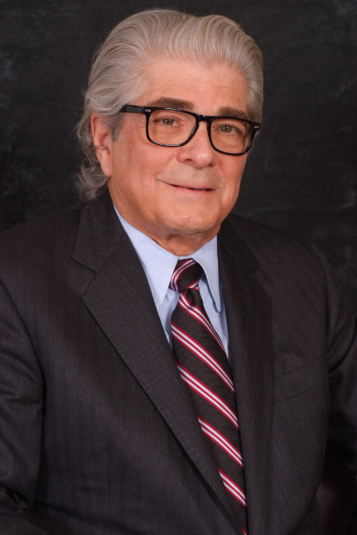An Interview with EMJ Urology Editorial Board Member Dr Alan Wein
Founders Professor and Emeritus Chief of Urology and Director, Residency Program in Urology, Penn Medicine, Perelman School of Medicine at the University of Pennsylvania, USA; Chairman, Clinical Competency Committee of the Division of Urology, Chair, Committee on Appointments and Promotions of the Department of Surgery, University of Pennsylvania Health System; President, International Society for Men’s Health; Membership Committee Chair of the Society of Academic Urology; Executive Committee Historian for the Society of Urodynamics, Female Pelvic Medicine and Urogenital Reconstruction; Underactive Bladder and Nocturia Working Group for the International Continence Society; Editor-in-Chief of Campbell-Walsh Urology; Co-Editor of the book, INCONTINENCE; Winner of the Keyes Medal from the American Association of Genitourinary Surgeons, Recipient of the Hugh Hampton Young Award, Distinguished Service Award and the Distinguished Contribution Award of the American Urological Association.
![]()
Written by James Coker | Reporter, European Medical Journal | @EMJJamesCoker
![]()
 EMJ Urology Editorial Board member Dr Alan Wein has enjoyed a long and distinguished career in healthcare, having been at the heart of numerous advancements in urology that have shaped the development of new therapeutic approaches. While having primarily worked in a surgical capacity, he has also been heavily involved in research; for example, in 2012 he was awarded the Keyes Medal for his lifetime contributions to our understanding of lower urinary tract physiology and pharmacology and the evaluation and management of lower urinary tract function and dysfunction. Dr Wein has had the opportunity to pursue these dual roles at Penn Medicine, Perelman School of Medicine, Pennsylvania, USA, where he held the position of Director of the Division of Urology for 39 years and is now the Founders Professor, Emeritus Chief and Residency Program Director. With all his experience in clinical practice and research, as well as holding prominent positions in many international urological societies, in our recent discussion Dr Wein spoke about the evolution of the field over the years, insights into his working life, and his opinions on future trends and areas where research should be focussed.
EMJ Urology Editorial Board member Dr Alan Wein has enjoyed a long and distinguished career in healthcare, having been at the heart of numerous advancements in urology that have shaped the development of new therapeutic approaches. While having primarily worked in a surgical capacity, he has also been heavily involved in research; for example, in 2012 he was awarded the Keyes Medal for his lifetime contributions to our understanding of lower urinary tract physiology and pharmacology and the evaluation and management of lower urinary tract function and dysfunction. Dr Wein has had the opportunity to pursue these dual roles at Penn Medicine, Perelman School of Medicine, Pennsylvania, USA, where he held the position of Director of the Division of Urology for 39 years and is now the Founders Professor, Emeritus Chief and Residency Program Director. With all his experience in clinical practice and research, as well as holding prominent positions in many international urological societies, in our recent discussion Dr Wein spoke about the evolution of the field over the years, insights into his working life, and his opinions on future trends and areas where research should be focussed.
Early Attraction
Dr Wein was originally attracted to the field of urology when he experienced first-hand how effective and compassionate the urologists were who looked after his father. During his medical studies, he also discovered that there were many areas ripe for discovery, providing the opportunity for those stepping into the field to have a major impact. “There were a lot of things about urology that I found very attractive,” he elucidated. “I was interested in physiology and pharmacology, which were my favourite set of courses at Penn, and because the lower urinary tract was relatively devoid of a lot of scientific explanation about how it worked I thought that would be a nice thing to couple with a clinical career in urology.”
Advancements in the Field
It is little surprise that Dr Wein has observed revolutionary changes in the ability to treat urological approaches in his career. He sees urologists as generally being very open to innovation and the early adoption of new techniques, explaining how this has been fundamental to the work at Penn Medicine. For the treatment of stones, he views the advent of shockwave therapy as well as the growth of other minimally-invasive manipulative approaches as having a particularly major impact. Another major change was the introduction of robotic surgery, which, alongside laparoscopic techniques, has reduced the number of open surgical procedures on the urinary system and kidney. “There is little question that robotic surgery offers equivalent results in regard to both efficacy and adverse events along with much less post-operative morbidity for patients compared with open surgery. This applied first to the kidney, then the prostate and the bladder and retroperitoneum, and it’s made an incredible difference,” he outlined. Other notable therapy advancements Dr Wein spoke of were developments in the field of prosthetics, including enhancement of the sophistication and safety of artificial sphincters and penile prostheses since the first ones were created in 1973. In his view, whilst precision medicine is a concept just starting in the field, it holds huge potential for future growth.
Improvements in imaging techniques have also transformed the field in the view of Dr Wein. “As far as imaging is concerned, the whole field has changed markedly,” he commented. “When I was a resident we had intravenous urography and retrogrades. At Penn, we were early adapters and innovators in ultrasound, CT, MRI, and PET scanning, and the sophistication in these techniques have changed the whole diagnostic field of urology.” Unsurprisingly, the use of the prostate-specific antigen (PSA) test was identified by Dr Wein as vital in enhancing the ability to identify and combat prostate cancer. He believes that the current issues regarding screening are more a product of overtreatment than overdiagnosis.
Keyes Medal Award
Dr Wein has undertaken extensive research on the lower urinary tract during his career and in 2012 was awarded the Keyes Medal for his lifetime contributions to our practical understanding of micturition physiology. This work has revolved around enabling easier and simpler clinical application to be made to our advancements in understanding the lower urinary tract. “You could summarise it by saying that I tried to simplify concepts of physiology and pharmacology to the point where people can actually relate these to what goes on during bladder filling, urine storage, and bladder emptying, and being able to come up with a very simple classification of lower urinary tract disorders in terms of failure to fill and store and failure to empty,” he explained. “And then combine disorders with sub-classifications under each one of those and constructing a really simple and logical treatment schema for them all. This simple-minded system is something I am particularly proud of.”
He also opined about the areas of bladder physiology that require greater levels of research. This includes the sensory mechanisms of lower urinary tract function; in particular, the neurotransmitters involved in this and understanding how they can be altered pharmacologically or by other energy sources. Additionally, greater knowledge of the mechanisms of detrusor over and underactivity, including neurogenic factors, are required to develop more effective treatments in his opinion. “We don’t really have a way to manage or treat the underactive bladder other than doing a balance act by decreasing outlet resistance; in other words, rather than increasing detrusor contractility, the only thing we can do now is try and increase emptying ability by decreasing outlet resistance,” said Dr Wein. He added that the ongoing work in urological cancers needs to be continued in order to better understand aetiology and pathophysiology, leading to new prevention and treatment strategies.
Trends in the Field
Discussion then turned to trends that have occurred in his clinical practice in recent years. He has seen a significant increase in the prevalence of a number of conditions, which he attributes largely to improved screening techniques and increased awareness of their signs and symptoms. This includes a higher number of significant prostate cancer cases due to the use of the PSA and other markers and a growing predominance of renal cell carcinoma and other kidney tumours because of the many kidney tumours observed incidentally on CT scans conducted for other reasons. Complaints regarding erectile dysfunction have likewise gone up, which Dr Wein believes is due to the growth of media campaigns that have spread awareness and reduced the negative stigma of such conditions. He added that this has also been the case for prostate and testis cancer, helped to a great extent by celebrity promotion. This has led to more men being prepared to receive examination and look out for the signs and symptoms. Such an emphasis, he believes, would also be highly beneficial in the case of bladder cancer, of which there has been less coverage.
Having been Director of the Division of Urology at Penn Medicine for 39 years, Dr Wein and his colleagues have been innovative in their approach to taking on the challenges in the field. They adopted new therapy techniques early on, such as in imaging, laparoscopy, and robotics, and major advances in the physiology and pharmacology of lower urinary tract function and dysfunction were made in their lower urinary tract smooth muscle lab. Another aspect that Dr Wein was keen to talk about was their focus on subspecialisation, ensuring that every major institution contains individuals who have expertise in every subtopic of urology. “We recognised early on at Penn that the day of the renaissance urologist was over, and that we would send people who were residents in our programme off for specialised training with the idea of bringing them back to run a particular section, whether it be oncology, stone disease, lower urinary tract, incontinence, andrology, infertility, and so on. We took the hint from our paediatric urology colleagues at The Children’s Hospital of Philadelphia. So in every bracket we have someone who is truly a subspecialist and fellowship trained,” he explained.
Advice for Students
For medical students considering a career in urology, Dr Wein spoke about the importance of taking in as many experiences as possible before making a final decision. “My advice for medical students in general is to try and get a look at all the fields of medicine that aren’t necessarily shown to you as a medical student and see what those people do and just as or more importantly see what kind of a life those people lead,” he elucidated. “And if you’ve made a decision to go into that field then I think it’s important for you to choose the residency that suits or fits you; if you’re not that interested in doing basic research then choose a residency that concentrates on clinical expertise and if you want to be an academician, then choose a residency that provides good clinical training but focusses on developing academicians.”
EMJ Urology 6.1
In this illuminating interview, Dr Wein discussed a wide range of urological areas that we cover in our various EMJ Urology publications, of which he is a distinguished Editorial Board member. This is displayed in no small degree in the latest edition of the EMJ Urology eJournal, which included a review of the 2018 European Association of Urology (EAU) Congress and a plethora of peer-reviewed papers. This can be accessed by clicking here. You can also subscribe for free to our urology-related content by following all the steps on our mailing list page here.








